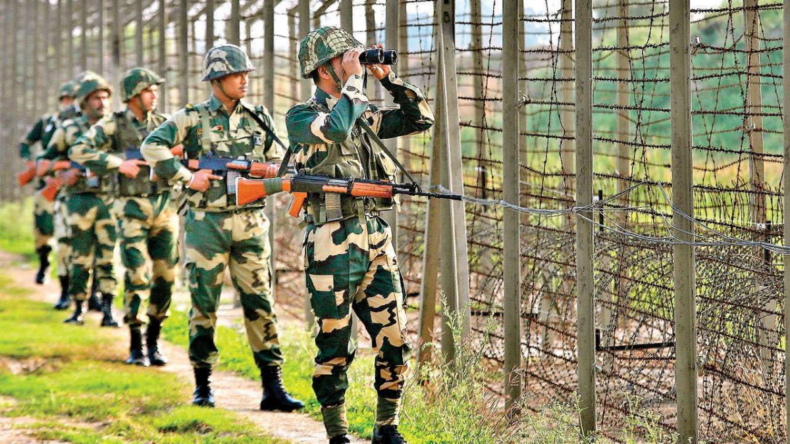Center While Responding to the Questions Raised by Trinamool MP Explained the Objective Behind Increasing the Authority of BSF in Border Areas.
Union Government on Tuesday, while responding to the question raised by Sajda Ahmed (Trinamool Congress’s Member of Parliament), said, “A decision to extend the Border Security Force’s (BSF’s) jurisdiction concerning search, seizure and arrest in some bordering states will help combat trans-border crime, illegal infiltration and adverse demographic change”.
In October, the Center amended BSF Act, 1968 to authorize the BSF (at par with local police) to undertake searches, seizures, and arrests within 50 km (from earlier 15 km) stretch from the International border in three states viz.
Punjab, West Bengal and Assam. In Gujarat, the jurisdiction of BSF was lowered to 50 km from earlier 80 km, and the Government kept it unchanged in Rajasthan. Section 139 of the BSF Act empowers the Central Government to confer powers to armed forces w.r.t. any central acts for the purpose specified therein.
Changes made by the Center attracted immediate criticism from Congress and Trinamool Congress (TMC) ruling, Punjab and West Bengal, respectively. Congress and TMC termed this move as an attack on the Federal structure guaranteed by the Constitution as it interferes in the jurisdiction of the police, which is a State Subject mentioned in the 7th Schedule of the Constitution.
Also, the Punjab assembly passed a resolution opposing the move of Center. TMC chief and Chief Minister of West Bengal also raised her concerns with PM Narendra Modi when she met him at the National Capital last week. On the other hand, BJP (in power in Assam and Gujarat) accused the opposition parties of playing politics with national security issues.
“Extension of BSF jurisdiction will aid effective control on trans-border crimes in cooperation with local police, apprehensions expressed by Governments of Punjab and West Bengal that increased jurisdiction of BSF will effect Federal structure are informed,” said Nityanand Rai, Union Minister of State for Home.
BSF Director General Pankaj Kumar Singh said, “Reason for extending jurisdiction is to curb demographic changes in certain states. Demographic balance in Assam and West Bengal has changed, and many natives agitated against it in the past. Increased jurisdiction will help BSF cooperate with Local police in a larger area to catch and curb infiltrators”.
BSF is India’s border guarding organization on its border with Pakistan and Bangladesh. It was raised in December 1965 in the wake of 1965’s war with Pakistan to maintain security at border areas.
BSF acts as the first line of defence at the international border. It helps curb illegal migration, smuggling of weapons and illicit drugs, human and animal trafficking and is responsible for the overall protection of border areas.
Armed Forces and Special Protection Act (AFSPA) also confers similar powers to armed forces, including (the BSF) in the whole regions of Assam, Arunachal Pradesh, Manipur, Nagaland, Jammu & Kashmir and Ladakh.
The role and conduct of BSF have been controversial. Bangladesh accused BSF of excess while performing the duty and even accused it of killings of innocents; TMC leaders accused BSF personals of touching women inappropriately while frisking.
Need of the hour is that States must cooperate with BSF officials to maintain security, curb infiltration, abate smuggling along international borders. BSF shall and must not cross its jurisdiction and respect the state’s authority conferred by the Constitution. Senior officials from State Police and BSF may organize annual meetings to discuss ways to enhance cooperation and resolve contentions.













